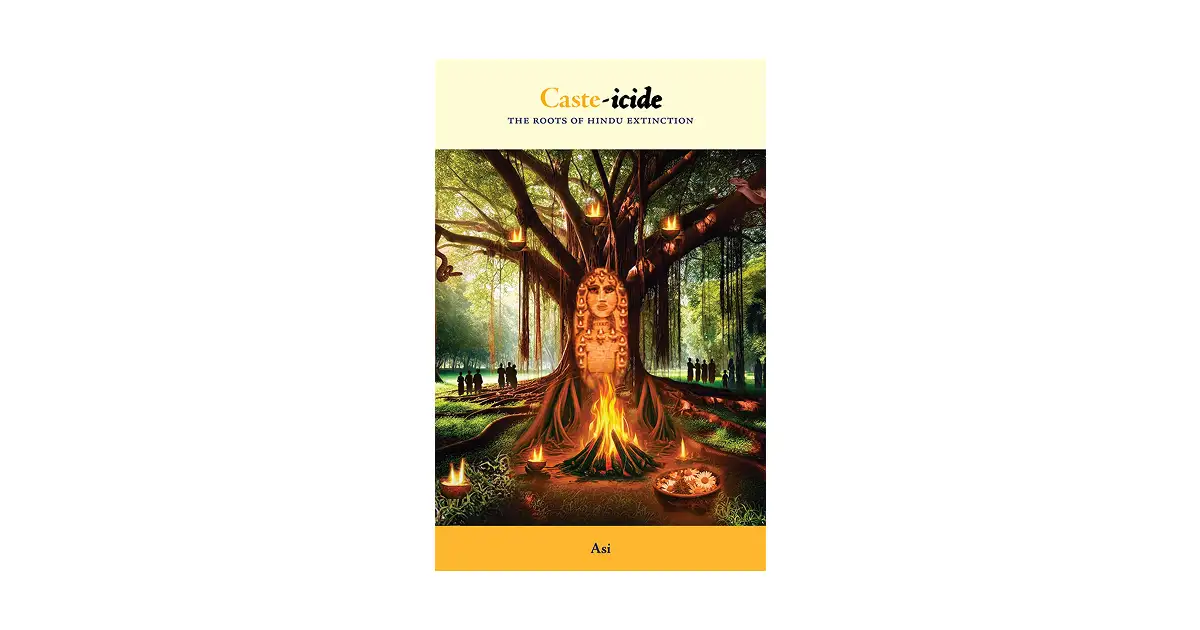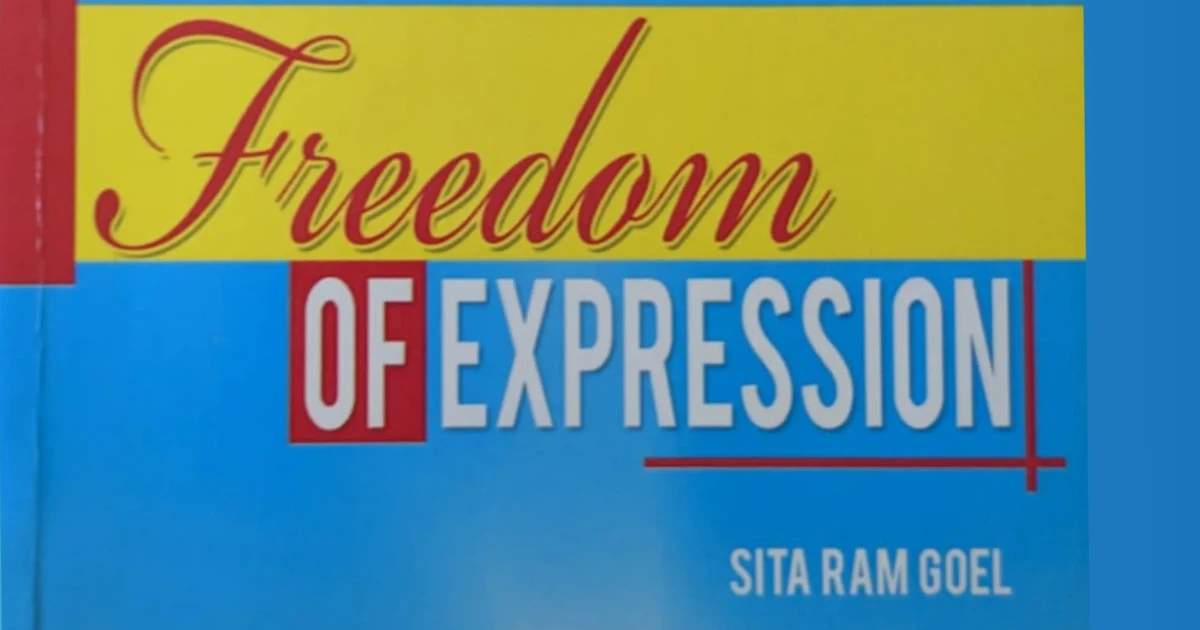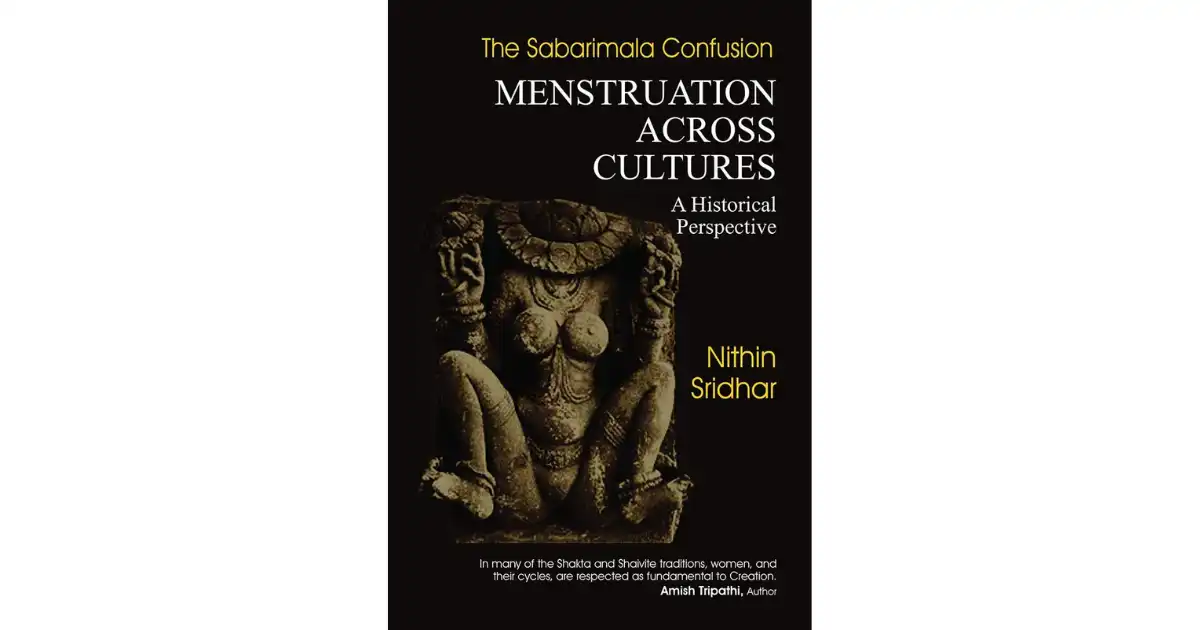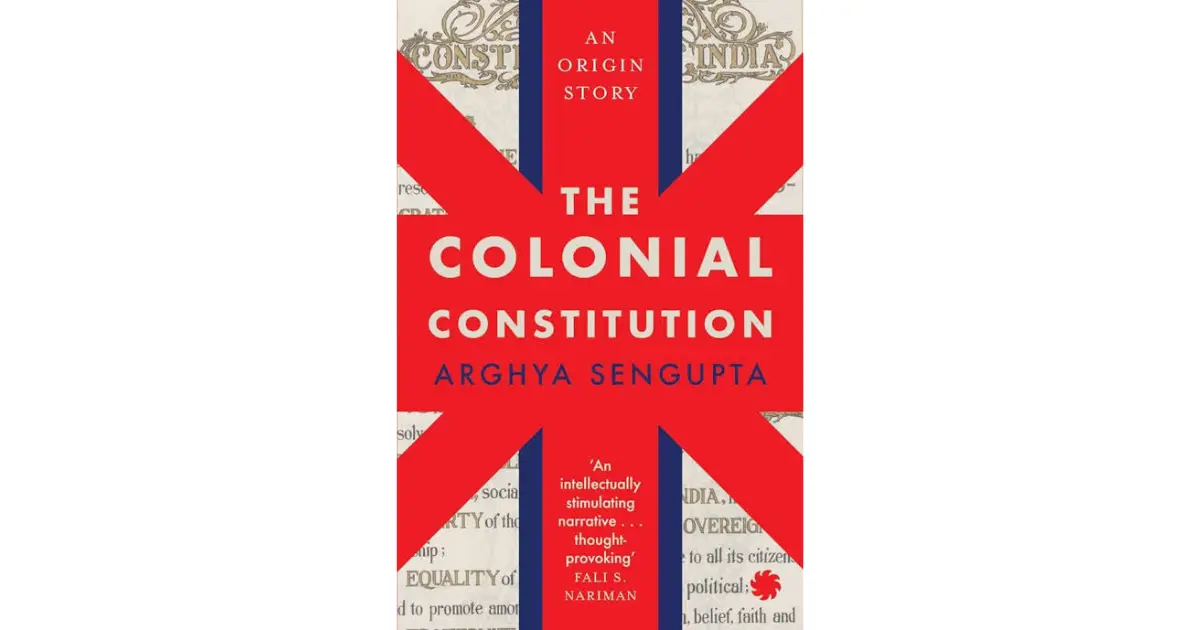I received almost no institutional support from the university or the Union, except for shallow words of sympathy. I was left to fend for myself. It was an impossible situation. I did not know what to do. I was on the very edge, and losing grip very quickly. Nobody had any advice for me at that time, and my brain was barely functional due to the extreme stress I was under. I was so disturbed by the incessant bullying and threats that I had almost stopped eating and functioning normally.
Penned by Rashmi Samant herself, this quote and her book, A Hindu in Oxford, capture her journey through the so-called student academic life and leadership at one of the premier universities in England. And a scary journey it is: if it were not for her upbringing, grounding in dhārmika heritage, and clear resilience built over her rich experiences in childhood and adolescence, I doubt a young woman in her early 20s would have been able to come out of such an experience unscathed, if not completely jaded and bitter about the world.
While told from her own experiential perspective, the book provides a great framework and history as well, for individuals from any background seeking to comprehend the biases and inequalities inherent in today’s ‘diverse’ global society. Her own experience along with her subsequent tracing of the consistent violations of the Hindu community’s human rights , over the past several decades, locate Hinduism in the world-order today. Readers easily pick up that the Hindu way of life is not the superior or even respectable, equal way of life. Globally, it is seen as one to be shunned, silenced, and eventually exterminated, too, in the most powerful circles.
Is Oxford Ready for a Hindu President? The opening chapter of the book paints extremely bleak imagery through memories of Rashmi’s initial days at Oxford, as well as her unbelievable experience running for Student Union President. She powered through fourteen days of quarantine upon arriving at the campus, not seeing a single person and essentially being locked into a room for the first two weeks. She went on to figure out how to successfully navigate through virtual classwork, student activities, and general student life, eventually getting more involved in the student leadership body as well. Rashmi won the Student Union Presidential elections with a whopping fifty-four percent margin. However, within a few hours of the announcement - the dam broke as the hate-mail, slurs, bullying, and social media attacks began. All because of her religious identity and family background.
Even my parents were not spared. I was baselessly touted as being transphobic, racist, anti-Semitic, Islamophobic, and a bigoted supremacist who believed in the tenets of patriarchy. The irony of accusing the first Indian female President of the Oxford University Student Union of patriarchy, was lost on me at that point.
Cut to Hello World, chapter two of the book - where Rashmi chronicles her bright, rich and anchored childhood as a single daughter in a huge extended family, growing up in the beautiful Udupi, Karnataka. This chapter is a stark contrast from the previous one, slating a distinct difference between life in India, growing up in the late 90s and 2000s, in a rural and natural setting - and life at Oxford, purportedly one of the best universities in the world. In this section, Rashmi beautifully connects how different aspects of life - including cuisine, values, the presence of elder relatives, age-old temples, celebration of festivals and traditions, and even śāstra that one is exposed to - these all contribute to cultural upbringing.
It could not be clearer to the reader that this cultural upbringing is what lays the foundation for the individual’s ability to handle strife. To handle challenges, stress, disparity, and immense pressure later in life.
Pressure that slowly builds once Rashmi reaches Oxford. Her initial months there were not too bad, even idyllic as she states. However, she did experience a bit of Imposter Syndrome. The student life, especially in the midst of the Covid pandemic, did give an apocalyptic feeling many times. As she settled into the campus, she began seeing the hypocrisies and colonial mindset in which the institution was entrenched. In fact, she opens a chapter with the bone-chilling recall:
I was asked why I was pursuing a policy of decolonisation in my manifesto when colonisation was a positive experience for the indigenous people and civilised them.
She goes on to narrate details regarding the history of colonial mentality and loot, blood money, posh Oxford ‘type’ of students, and finally the era of neo-colonialism. Though one would expect change in this new era - a backlash to the negative effects of colonialism - Rashmi recounts how minority populations in the student body are still in a way slaves, if not subjects, to the Western world. These students are denied access to many rights and opportunities, and end up living a life which is much more demanding, challenging, and exacting than their British peers. Therefore, Rashmi had intentionally and consciously based her presidential campaign around Decolonizing Oxford.
Her presidential manifesto was based on four concrete, major changes that she wanted to bring about in the university. This decisive choice was the trigger that opened her up to the nepotism that existed within the institution. Instead of dealing with students fairly, and based on merit, Rashmi began facing initial opposition. She was quickly called out for negative campaigning, for saying things as simple (and true!) as -
As the only graduate student, woman and person of color running for the position, I would be beyond honoured to have your vote.
This simple statement was considered crossing the line between personal qualifications and negative campaigning! She was excluded and censored from participating fairly in the election, and it became a deep mental agony to actually go through with the election.
The night she won was initially a happy one - but quickly turned into one of the biggest shocks of her life. She was:
- Accused of crimes she never committed
- Targeted by huge numbers of hate messaging across multiple platforms, including official University email
- Called racist, transphobic, anti-Semitic, and more - even in an official statement from a university institution!
Then began the serious harassment and witch-hunt phase, when she was ostracized for being non-conformist. She was made the villain, ‘canceled’ in the typical cancel-culture trend, and removed from professional and social circles, both online and in-person. It was legally impossible to have her removed from the presidency by that time, so she was being removed instead through mob justice, where hyperbolic lies could be spread at a mass level without proof. The tool-kit narrative was created and disseminated like clock-work.
Rashmi eventually reached a point, as anyone would, where she could no longer handle being in that situation - being at Oxford. It was an even more challenging time, as Covid restrictions had doubled down and travel was next to impossible. She managed to get in touch with a family friend, off campus - and stay at their home before coordinating her travel back to India.
It is here in the book that Rashmi dives into the vast universe of Hinduphobia. The mob antics she faced, the bigotry - though she was the one being called a bigot - the literal glorification of loot, slavery and colonization. And beyond her own personal experience as well, she lists examples from recent times of successful Hindus being subjected to Hinduphobia. The stereotypes, blacklisting, and selective outrage that individuals and the community at large battles, year-in and year-out. She provides an exhaustive overview of Hinduphobia in mainstream media, showing how the Hindu is eternally vilified.
Rashmi then cuts back to her life as a student. She had to make her own justice of course, in a world that only snatched justice away from her own hands. She even provides a few steps, based on her experience, that one could follow if suffering through a similar targeting:
- File a formal complaint against the harassment and bullying, write to the decision makers and/or those in positions of power to make a difference. Rashmi wrote to her college principal, with evidence demonstrating her being made a victim.
- Report the crime. Rashmi did indeed report the incident as a hate-crime with the UK police. Not that this helped: there was largely dismissive treatment from the establishment.
Not getting justice from the establishment that was set up for this purpose solely, Rashmi felt she went through hell and highwater. The two people responsible for her investigation were constantly on leave, or refused to proceed or update the case.
Rashmi found herself experiencing paralytic attacks due to the immense pressure, with episodes of sleep paralysis and post-traumatic stress disorder.
It was only her anchored upbringing - her Hindu culture, heritage, and values - that pulled her through this all. She pens a section called Dharma through Despair, and describes her experience of the positive impact of having a spiritual uprooting in Hindu Dharma. This alone grounded her through the humiliation in public and vindication in private settings, the layers of double standards she lived through every day.
This reflection of hers transitions into one of the most powerful sections of the book, on Hindu Human Rights. This chapter brings to light the fact that Rashmi is not an exceptional case, an outlier when it comes to treatment of Hindus. There are multiple historic events that chronicle the same global mistreatment of anything Hindu, which Rashmi brings to the surface thoroughly:
- Persecution of Hindus of Afghanistan
- Unending Persecution of Bangladeshi Hindus
- Weaponization of Blasphemy in Pakistan and Countdown to the Last Hindu
- Displaced Hindus of Kashmir
- Organized Violence against Hindus
- Second-Class Citizenship in Sri Lanka, Malaysia, Indonesia, and even Fiji
- Inability of Hindus in Caribbean, South Africa, Seychelles, Reunion, Mauritius, and Uganda to trace their ancestral roots - due to indentured servitude
- Everyday extremist violence against Hindus that continues till date
These all point to the portending possibility that as things stand today, in 2023 - the Hindus will soon be the individuals and the community of a homeless civilization.
In this aspect, Rashmi brilliantly uses her own chance experience at Oxford - and not-so-by-chance persecution from the community - to light the spark that fuels raging flames about the Hindu civilizational battle at hand.
The closing chapter of her book, New Beginnings, draws the amazement of the reader. Rashmi exhibits a deep sense of maturity and clarity when it comes to accepting her circumstances and refusing to lose out as a victim of her situation. She puts her focus on the need to heal and move on from what has happened, and how she can harness her past and present to get the best mileage out of her future.
She knows experientially, as the law of dharma - that nothing is more valuable than a clear conscience.
Rashmi encourages readers to stop apologizing for mistakes and crimes not committed, to stop succumbing to social pressures. One of her biggest learnings is that the Hindu should be unapologetic of their ancestry, spirituality, and culture on the world stage. One should be confidently assertive, and never be ashamed or embarrassed of their identity.
Her prayer is for the Hindu youth to take pride in their rich history, heritage, and culture.
*|| *धर्मो रक्षति रक्षितः ||






